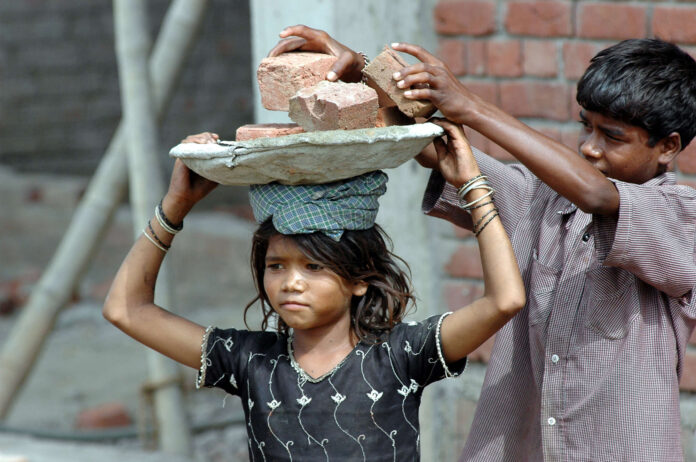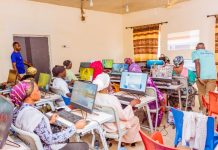DURBAN, South Africa, May 2022/ — The campaign to #EndChildLabour was carried on at the International Convention on the Rights of the Child (ICC) in Durban, South Africa. The fourth day of the conference was jam-packed with stimulating and enlightening discussions.
This hybrid event, with sessions available both in-person and online, has drawn nearly 13,000 viewers on the live stream and hundreds more in-person since its inception.
Attendees can participate in in-person and online discussions by submitting questions online. The day’s main message was that actions needed to be reviewed in order to eliminate child labour faster and for the better. All discussions will contribute to the advancement of the Durban call to action.
Starting from the root causes
Day four kicked off with thematic panels, one of which sought to connect civil society organizations. Panelists came from various organizations from around the World and all say, ‘We must eliminate child labour, starting from the root causes’.
Emmerance Tuyishime, Acting CEO of the Pan Africa Farmers’ Organization, was born and raised in a farming family in Rwanda. She is familiar with the issue of child labour. In response to a question about the distinction between Child labour and child work – a common concern throughout the conference – she said: “Some people say Child labour prepares children for the future,” she said. “However, it is harmful. Period. It interrupts children’s ability to learn due to heavy work, both mentally and physically.” The main cause of child labour is poverty, not culture, she said. Parents are left with no choice. “This is where farmers’ organizations and development agencies come in – to make sure they have the income to support their families.” And the more eyes that are looking out for child labour, the better.
Willy Buloso, the Regional Coordinator at ECPAT International, spoke about his experiences in monitoring child labour in the tourism industry. He advised that we need to establish a policy for all companies working in travel and tourism. We must train staff on the issue and add a zero-tolerance clause must be added to contracts.
In the financial sector, development banks are often known for their initiatives against child labour. Augustina Perez, Child Rights Senior Associate at the Bank Information Centre, noted that private banks can also make a difference. “We push banks to do better,” she said through both advocacy and monitoring. We check where banks are investing, what the risks are, and whether there are measures in place to prevent child labour.
Civil society and organizations left the meeting prepared to better align their messages, strengthen collaborations, and improve engagement on the issue of Child labour.
Making connections
The panel discussion on the central role of social protection in tackling Child Labour was driven by Cynthia Samuel-Olonjuwon, Assistant Director-General and Regional Director for Africa of the International Labour Organization (ILO). The report on Social Protection and Child Labour was launched by the ILO and UNICEF. Followed by a panel discussion with respected experts.
Mohamed Moustapha Malick Fall, UNICEF – Regional Director for Eastern and Southern Africa highlighted that according to the joint International Labour Organization (ILO) and UNICEF report, Social protection is a highly effective policy. The report touches on the fact that we are at a critical crossroads the number of children living in poverty is on the rise. Some 1.5 billion children, aged 0-14, receive no family or child cash benefits. This large protection gap must be closed and closed rapidly. Addressing social protection will assist in the elimination of child labour. It needs to be an all-sector approach.
View the report – https://bit.ly/3wrGOl4
Indeed, human rights have financial implications. Social protection is not about handouts, but about the creation of wealth and sustainable and inclusive growth, as summarized by panel moderator Cynthia Samuel-Olonjuwon, Assistant Director-General and Regional Director for Africa of the International Labour Organization (ILO).
Global networks like Alliance 8.7 are making a difference, but they are not simple mechanisms. And they cannot function without the support of the Global North. Anousheh Karvar, Chair of Alliance 8.7, said that we need to connect with each other. Partners, civil society, governments, NGOs – everyone. We need to connect across people and countries, through supply chains.
Innovative solutions are needed it cannot be business as usual!
Skilling up youth
The thematic panels later in the day focused on decent jobs for youth, diving into ways we can best support 15- to 24-year-olds in their transition into decent work. This is especially important for youth who have experienced hazardous employment or occupational safety and health risks.
“Young people may have skills that are not recognized or certified,” said Jacqueline Mugo, Executive Director & CEO of the Federation of Kenya Employers, Secretary-General. It was also mentioned that youth skills need to be validated. Governments need to make sure that the youth have skills that are relevant to the specific needs of their respected economies. Young people that work in informal jobs and small enterprises will need extra support and should not be left out of the conversation.
Tshilidzi Marwala, Vice-Chancellor and Principal of the University of Johannesburg, brought up the importance of digital skills in particular. He explained, that the university recently created a computer literacy course that is also open to the wider public – anyone who wants to take it. “With a 37% unemployment rate in South Africa, due to deindustrialization, there is no middle road”, he said. “We have to increase our level of competitiveness in the so-called data economy”.
Focus on financing
How can we mobilize financial resources to make the generational investment required to end child labour? This thematic panel explored this question and addressed topics from public spending to international trade.
Bobbi Gray, Research Director at the Grameen Foundation, said that one of the key lessons the foundation has learned is communicating better to change how financial service providers think about Child labour. “It’s such a big topic and seemed outside of the scope of their mandate,” she said. “We really had to change how we talked about it. We emphasized harmful work and don’t use the term child labour all the time”.
The increasing limitation of democratic space, freedom of association and the right to collective bargaining in times of crisis contribute to an increased risk of child labour. Children in child labour need a strong lobby. Workers’ organizations, civil society organizations and media monitoring their situation are essential to alert authorities about child labour and related violations of the rights of children.
Other experts mentioned that they strongly feel that there is a need to do more to address child labour by being more efficient in social dialogue and engagement. They also strongly believe that universal social protection is a fundamental pillar for sustainable livelihoods and to #EndChildLabour.
The increasing limitation of democratic space, freedom of association and the right to collective bargaining in times of crisis contribute to an increased risk of child labour. Children in child labour need a strong lobby. Workers’ organizations, civil society organizations and media monitoring their situation are essential to alert authorities about child labour and related violations of the rights of children.
According to the ILO, more than 160 million children worldwide are involved in child labour, with South Africa accounting for less than 600,000 of those affected. The ILO applauds South Africa’s progress because of the country’s investment in children through its social protection system.
They claim that South Africa’s child protection systems are effective in comparison to other countries because children are enrolled in Early Childhood Development and Basic Education, and the investment in education and the strategy to provide children with food at school is lauded. In terms of social assistance, South Africa has the most extensive child support program (grants). When it comes to educational outcomes, especially in matriculation, the children in this programme outperform the national average.
Delegates believe that if we want to eliminate child labour, we must focus on social protection. South Africa is unique in that social protection is a right. South Africa receives the most funding in Africa, followed by Ethiopia.
The South African Constitution also provides for children to care for themselves in child-headed households. The South African government sends child and youth care workers to these families so that children can remain children. These child and youth care workers visit these children to ensure that they have a parental figure and that they continue to be children.
In the case of orphans, children can be fostered, adopted, or placed in a child and youth care center where they are cared for by the government so that they are not forced to become adults before their time.
In the fight against child labour, the government has been a leader. Child labour is a violation of children’s rights. It also contributes to the perpetuation of a cycle of poverty and exclusion because poor and vulnerable children are more likely to drop out of school to work as child labourers.
It is everyone’s responsibility to keep children safe. Child labour in any form is unacceptable, and this is a call to all to be vigilant and report cases of child labour at all times. It is everyone’s responsibility to care for society’s most vulnerable members, particularly children because more needs to be done to prevent child neglect, abuse, violence, and exploitation. To ensure that all children thrive, communities must work together to make them safer and healthier.
For the first time in its history, the 5th Global Conference on the Elimination of Child Labour will include a child participation session on 19 May 2022. This is in accordance with the South African Constitution, as well as Article 12 of the United Nations Convention on the Rights of the Child and the African Charter on the Rights and Welfare of the Child.
The conference’s children’s session will include an intergenerational dialogue in which children and policymakers will discuss solutions to end child labour. Children from the five ILO Regions will participate in the session both physically and virtually.
The conference will conclude on Friday, 20 May 2022, with the adoption of a Durban Call to Action programme.
Amplify and join the conversation by using the hashtag #EndChildLabour
Follow online: www.5thChildLabourConf.org
View the agenda for the upcoming day: https://bit.ly/3wiez8H













































